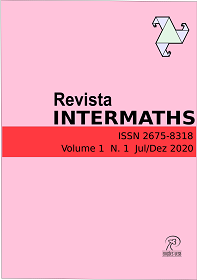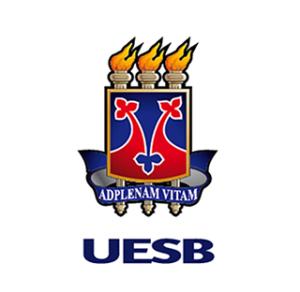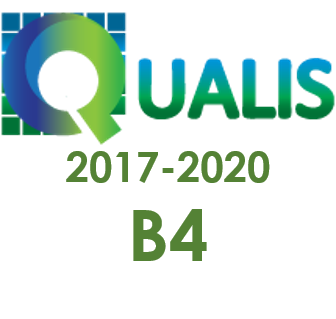Political, technical and pedagogical effects of the COVID-19 Pandemic in Mathematics Education: an overview of Brazil, Chile and Spain
DOI:
https://doi.org/10.22481/intermaths.v1i1.7400Keywords:
Distance Learning, Didactics of Mathematics, Philosophy of Mathematics Education, CoronavirusAbstract
This article discusses the problems and questions that are raised in Education and specifically in Mathematics Education from the problematization of the effects of the pandemic of COVID-19. For this, it was brought together three researchers in Mathematics Education from Brazil, Chile and Spain, who started to meet virtually. Based on these discussions, the group provided the context for each of the three countries in terms of how they have been dealing with the pandemic and selected three tales they lived related to the pandemic, that were used as material elements for a joint discussion in a non localized way. With this path, as results, it is shown an overview of the effects of COVID-19 in different countries related to education, that were categorized in Technical, Political and Pedagogical dimensions. Besides that, questions are presented to Mathematics Education produced from the problematization of the effects of the pandemic.
Downloads
Metrics
References
K. L., O’Halloran, Mathematical Discourse: Language, Symbolism and Visual Images, Continuum, London and New York, 2005.
D. Farsani, (2015), Making Multi-Modal Mathematical Meaning in Multilingual Classrooms, Unpublished PhD thesis, University of Birmingham, 2015.
S. Gerofsky (2010), Mathematical learning and gesture: Character viewpoint and observer viewpoint in students’ gestured graphs of functions, Gesture 10 (2010) 321-343, https://doi.org/10.1075/gest.10.2-3.10ger
L. Radford, F. Arzarello, L. Edwards & C. Sabena, The multimodal material mind: Embodiment in mathematics education, in J. Cai (Ed.), Compendium for Research in Mathematics Education, Reston, NCTM, 2017, pp. 700-721.
L. Radford, L. Edwards & , F. Arzarello, Introduction: beyond words, Educational Studies in Mathematics, 70 (2009) 91–95, https://doi.org/10.1007/s10649-008-9172-y
R. Núñez, Gesture, Abstraction, and the Embodied Nature of Mathematics, in W-M. Roth (ed.), Mathematical Representation at the Interface of Body and Culture, Information Age Publishing, Charlotte NC, 2009, pp. 309-328.
L. W. Barsalou, Grounded cognition, Annual Review of Psychology, 59 (2008) 617–645, https://doi.org/10.1146/annurev.psych.59.103006.093639
R. Nemirovsky, Three conjectures concerning the relationship between body activity and understanding mathematics, in N. A. Pateman, B. J. Dougherty, & J. T. Zilliox (Eds.), Proceedings of the 27th conference of the International Group for the Psychology of Mathematics Education, Vol. 4, PME, Hawaii, 2003, pp. 113-120.
L. D. Edwards, Gestures and conceptual integration in mathematical talk, Educational Studies in Mathematics, 70 (2009) 127-141, https://doi.org/10.1007/s10649-008-9124-6
C. Yoon, M. O. Thomas, & T. Dreyfus, Grounded Blends and Mathematical Gesture Spaces: Developing Mathematical Understandings via Gestures, Educational Studies in Mathematics, 78 (2011) 371-393, https://doi.org/10.1007/s10649-011-9329-y
J. Hattie, Visible learning: A synthesis of over 800 meta-analyses relating to achievement, Routledge, 2008, https://doi.org/10.1080/00071005.2011.584660
D. Farsani & R. Araya, Professional Proxemics, Part I, ECTEL Workshop Proceedings, 2017.
F. Lim, K. O’Halloran &, A. Podlasov, Spatial pedagogy: mapping meanings in the use of classroom space, Cambridge Journal of Education, 42 (2012) 235–251, https://doi.org/10.1080/0305764X.2012.676629
V. Font, A. Breda & G. Sala, Competências profissionais na formação inicial de professores de matemática, Praxis Educacional, 11 (2015) 17-34.
J. L. Lupiáñez, Competencias del profesor de educación primaria, Educação & Realidade, 39 (2014) 1089-1111, https://doi.org/10.1590/S2175-62362014000400008
Downloads
Published
How to Cite
Issue
Section
License
Copyright (c) 2020 INTERMATHS: Journal Applied and Interdisciplinary Mathematics

This work is licensed under a Creative Commons Attribution 4.0 International License.
- Responsibility: The scientific content and the opinions expressed in the manuscript are the sole responsibility of the author(s).
- Copyrights: INTERMATHS.
- All content of Revista INTERMATHS/INTERMATHS journal is licensed under a Creative Commons - Atribuição 4.0 Internacional







